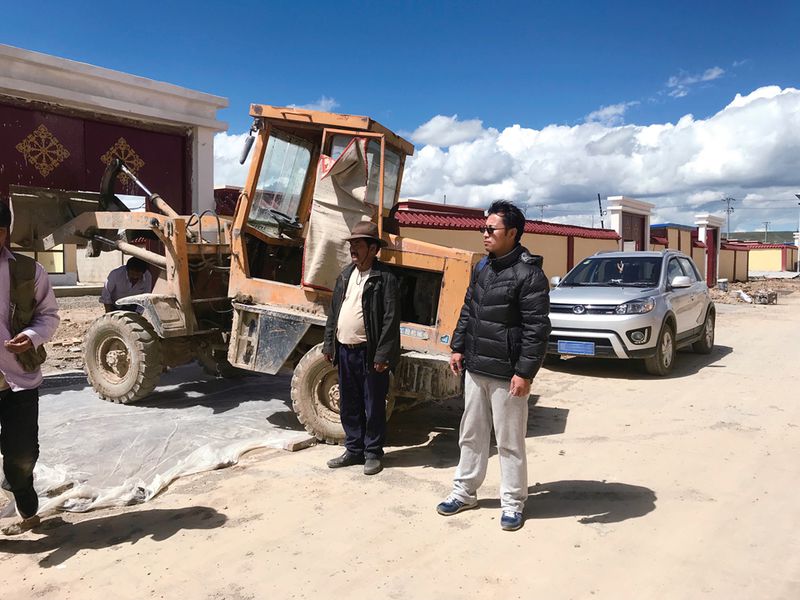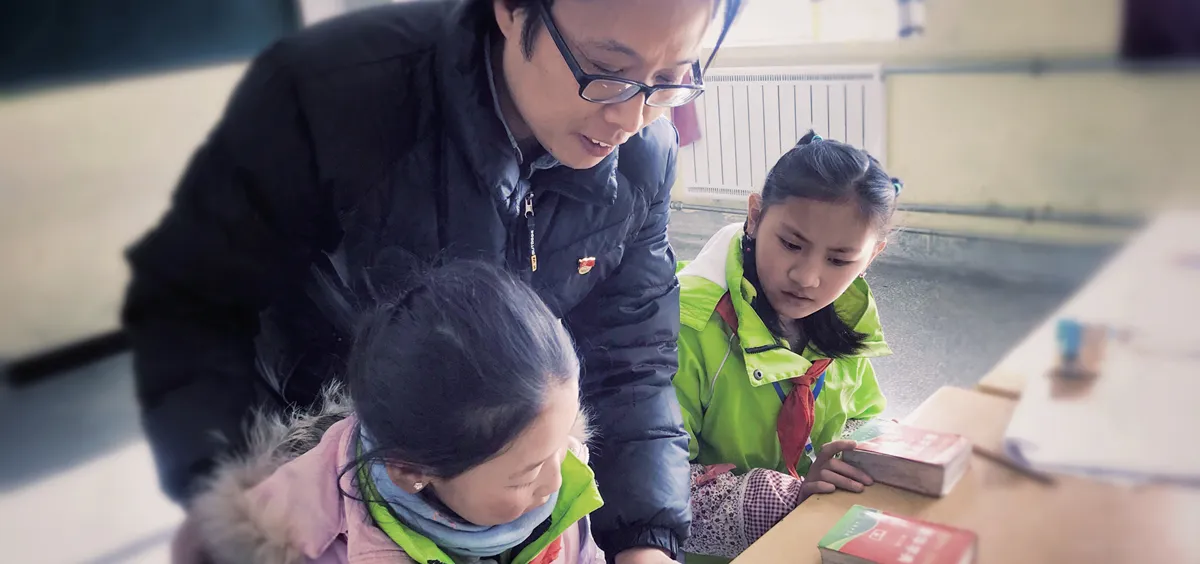Grassroots cadre Tong Panfeng races to meet China’s deadline to eradicate poverty
When Tong Panfeng arrived on a two-year anti-poverty mission in Zeku county, Qinghai province, one of the first things he discovered was that “hard work” was a whole lot harder there.
Formerly a proofreader at The Commercial Press, Tong was no novice when it came to early deadlines and late nights, but, “when in the rest of China, you can put your life on the line for your work, you can work like crazy, and that’s impossible on a plateau with only 60 percent the oxygen level of Beijing,” said Tong, who began to come down with debilitating headaches in mornings after an all-nighter, or simply after reading a document for too long.
The eye-openers, though, didn’t end with his personal habits. “It was very different from what I expected,” Tong admitted. “Before, I saw myself doing all this good in the village, but…well, for example, for three whole months all we did was just write reports and reorganize data for government inspection.”
In September 2018, Tong had been sent by the China Publishing Group to Zeku’s Erjian village to act as its “village-based first secretary of poverty relief,” a position created in 2015 under the central government’s “Accurate Poverty Relief” policy. Government institutions and state-owned firms nationwide were asked to mobilize Communist Party members in their staff to meet the goal of having one secretary in every village, who could lend their professional expertise to local authorities and act as their bridge to the Party.
Tong was chosen from his company almost by default. “You could not be over 45 because of the harsh conditions in the village; you couldn’t be too young because the workload is extremely demanding,” he said. The clock is ticking on China’s plan to totally eradicate poverty and build a “moderately well-off society” nationwide in 2020, a deadline first proposed by President Xi Jinping in 2017.

Cultural differences make locals reluctant to resettle in new homes built for poverty relief
According to standards set that year at the government’s 18th National Congress, a moderately well-off China will have a per capita GDP of 3,000 USD, and per capita net income of 8,000 RMB (1,100 USD) per year in rural areas. The country’s urbanization rate will reach 50 percent, its university enrollment rate will be 20 percent, and there will be 2.8 doctors per thousand of the population, among other standard-of-living guarantees.
On the ground, these goals have often led rural governments to construct modernized homes for entire villages, and build paved roads with traffic lights. Tong met some early success in his assignment when he obtained funding to build two roads connecting Erjian village to the local county. “There’s a saying, ‘To get rich, build a road,’” he said.
More difficult was working with people, rather than concrete. Laughing self-deprecatingly, Tong detailed a number of his plans from the past year that never got off the ground: a summer Mandarin language course for local Tibetan children that got derailed by bureaucratic inertia and his sprained ankle; a rural agricultural cooperative that no villager would invest their money in, because they preferred to bank any government subsidy they got.
“There were many cultural barriers I never expected,” Tong mused. “I had grown up in a village too, where everyone was eager to leave home and get a job in the city, and try to get rich.” He found occasional rewarding moments in interacting with local children, bringing them copies of Xinhua Dictionary and telling stories about Beijing.
The hardest project of all was to get local residents to move into their new homes in the village. “The local Tibetan people have been living on the grassland for centuries. They wanted more comfortable homes, yet were not willing to give up their herding traditions, and they did not have the skills or language ability to go elsewhere to find work.”
A large portion of Tong’s job thus consisted of going daily door-to-door to publicize the local poverty relief policies and check up on their progress. “We haven’t overcome these [cultural] barriers, and we are no longer trying to,” he said. “All we can do is slowly communicate with the village residents, encourage them to take up enterprise, and give them some internal motivation.”
Yet as more and more villages around the country proclaim they’ve “doffed the cap” of poverty ahead of 2020’s deadline, grassroots-level cadres inevitably feel the pressure mount. “Every morning when I woke up, the first thing I would do was prepare myself physically and mentally for work, to make sure I didn’t let myself get anxious or depressed,” Tong said.
The physical and emotional toll of anti-poverty work has come under recent fire from China’s leadership. In June 2019, an editorial in Leadership Decision Info, a journal affiliated with the Party School of the Central Committee of the CPC, lambasted slogans like “Day and Night,” “5+2 [Days a Week],” and “Give Up Family, Focus on Work” that party leaders use to demand cadres to meet non-negotiable deadlines, without making exceptions for the personal limitations, environmental factors, and local politics that may interfere. According to the State Council, 662 grassroots-level poverty relief cadres have died on the job as of the end of 2018.
“Honestly, if you ask me, I wouldn’t go again,” Tong, who has since left the plateau for training in the city, declared. “Well, I would continue working in poverty relief, if it meant making a difference in people’s lives. But not in a high altitude area—to make a difference, my body has to be able to handle it.”
First Aid is a story from our issue, “Grape Expectations.” To read the entire issue, become a subscriber and receive the full magazine.












